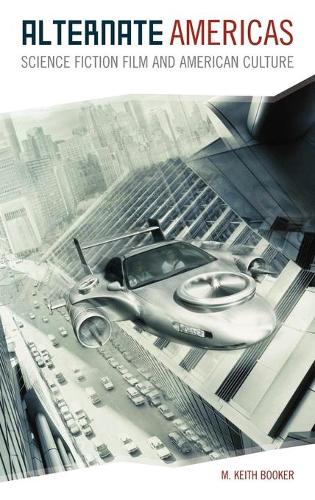
Alternate Americas: Science Fiction Film and American Culture
(Hardback)
Publishing Details
Alternate Americas: Science Fiction Film and American Culture
By (Author) Prof. M. Keith Booker
Bloomsbury Publishing PLC
Praeger Publishers Inc
28th February 2006
United States
Classifications
General
Non Fiction
Science fiction
Cultural studies
791.43615
Physical Properties
Hardback
296
Width 152mm, Height 229mm
595g
Description
For more than 50 years, science fiction films have been among the most important and successful products of American cinema, and are worthy of study for that reason alone. On a deeper level, the genre has reflected important themes, concerns and developments in American society, so that a history of science fiction film also serves as a cultural history of America over the past half century. M. Keith Booker has selected fifteen of the most successful and innovative science fiction films of all time, and examined each of them at lengthfrom cultural, technical and cinematic perspectivesto see where they came from and what they meant for the future of cinema and for America at large. From Invasion of the Body Snatchers to Star Wars, from Blade Runner to The Matrix, these landmark films have expressed our fears and dreams, our abilities and our deficiencies. In this deep-seeking investigation, we can all find something of ourselves that we recognize, as well as something that we've never recognized before. The focus on a fairly small number of landmark films allows detailed attention to genuinely original movies, including: Forbidden Planet, Invasion of the Body Snatchers, 2001: A Space Odyssey, Planet of the Apes, Star Wars, Close Encounters of the Third Kind, Alien, E.T. the Extra-Terrestrial, Blade Runner, The Terminator, Robocop, The Abyss, Independence Day, and The Matrix. This book is ideal for general readers interested in science fiction and film.
Reviews
ideally suited for general readers looking for a new perspective on familiar texts and for instructors looking for accessible analyses of how films reflect their historical and cultural contexts. * Film Criticism *
Booker studies 15 science fiction films made in the US in the second half of the 20th century, including The Day the Earth Stood Still (1951), 2001: A Space Odyssey (1968), Blade Runner (1982), and The Matrix (1999). The 25-page introduction reveals the author's extensive knowledge of his subject; here Booker looks at historical events that affected the production of certain types of films, e.g., the Cold War and the alien-invasion films. He then devotes a chapter to each film, providing for each a one-paragraph introduction; sections on the plot and the sources of the film; a longer discussion of how events in society contributed to certain concerns of the film and elements of the production; and a concluding section on how that film influenced other films. Recommended. Lower-/upper-division undergraduates; general readers. * Choice *
M. Keith Booker, the author of several studies of film and television, offers a guide to the leading science fiction movies since the 1950s. Each of his chapters is devoted to a film -- fifteen in total -- and follows the pattern of plot summary, note on sources, interpretation, and indication of the work's legacy. The summaries are helpful and clear but the interpretive commentary will probably be of more interested to the reader because in every case Booker relateds the films to their cultural context. * Journal of American Studies *
College-level collections strong in science fiction holdings will welcome the scholarly survey Alternate Americas: Science Fiction Film and American Culture. Its professor author M. Keith Booker has selected some fifteen of the most successful, innovative sci fi films of all time and here considers their cultural, technical and cinematic effects. Any genre fan will immediately recognize and acknowledge these selections as true 'greats', from Forbidden Planet and 2001 to Alien, E.T., Blade Runner and Matrix. That they not only reflected future fantasy but the concerns and culture of their times makes for a penetrating analysis which surveys plots and underlying meanings. * California Bookwatch *
Author Bio
M. Keith Booker is Professor and Director of Graduate Studies in the Department of English at the University of Arkansas. He is the author of numerous articles and books on modern literature, film, and science-fiction, including Film and the American Left (1999), Monsters, Mushroom Clouds, and the Cold War (2001), Strange TV: Innovative Television Series from The Twilight Zone to The X-Files (2003), and Science Fiction Television (2004).
